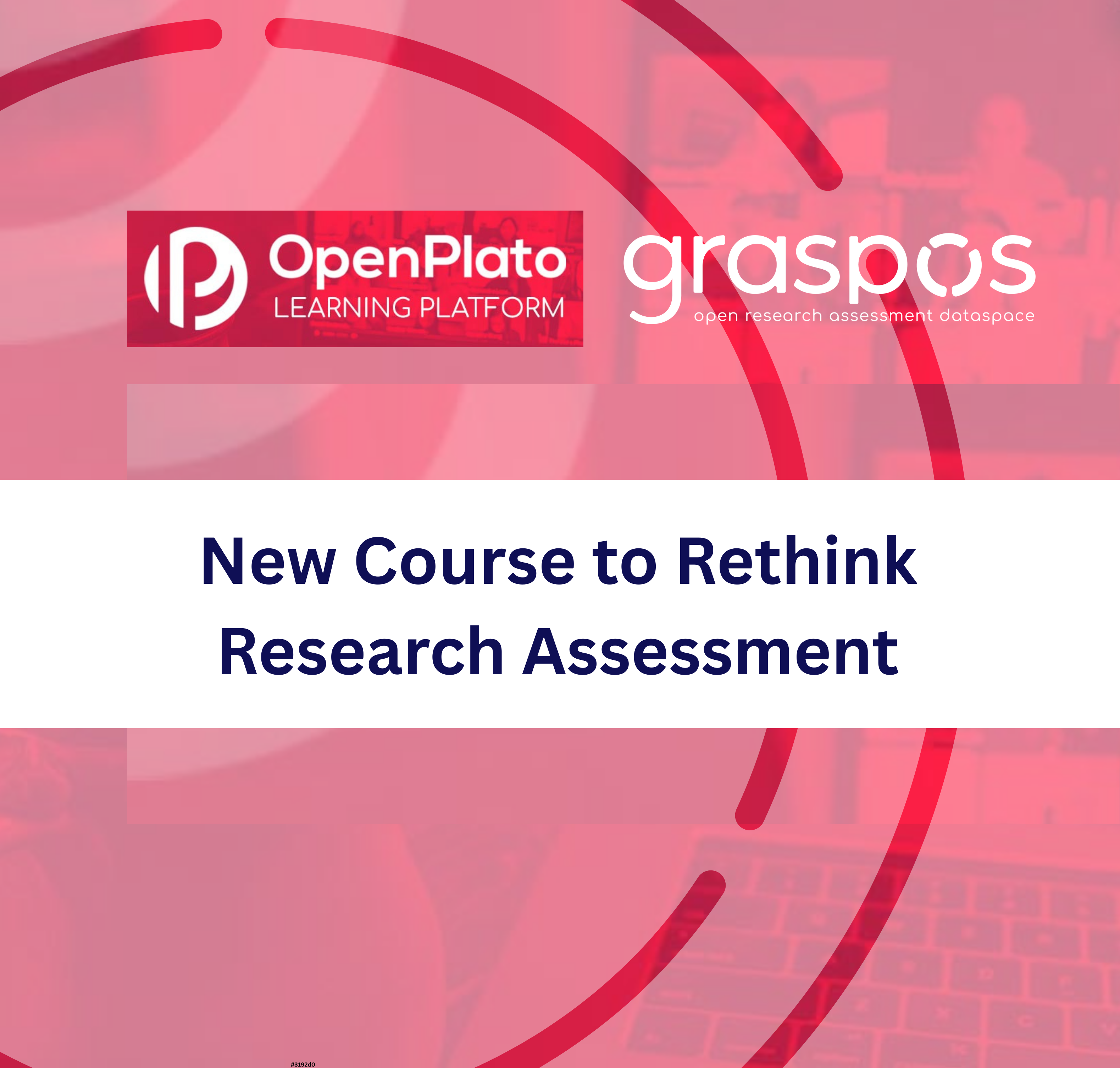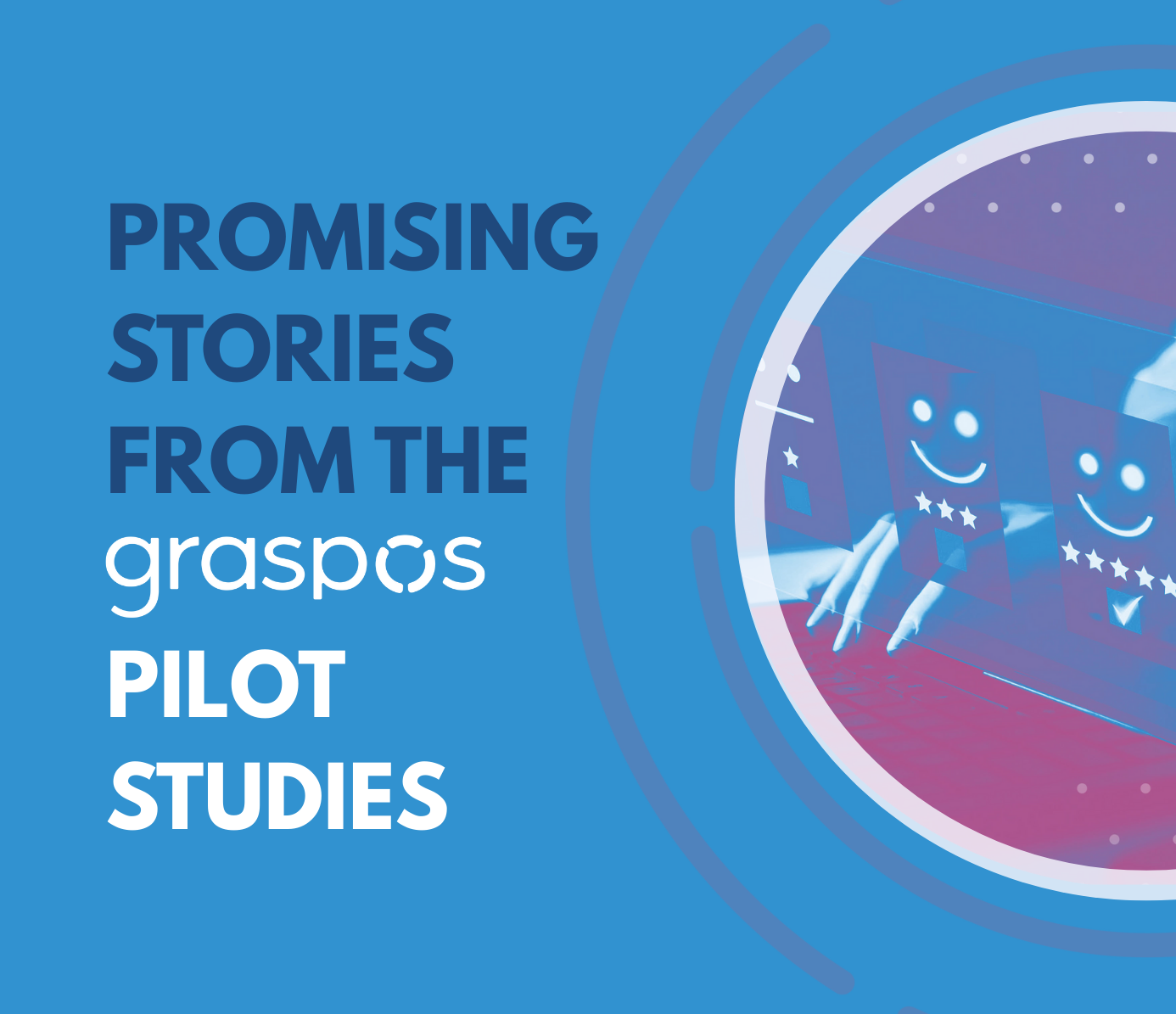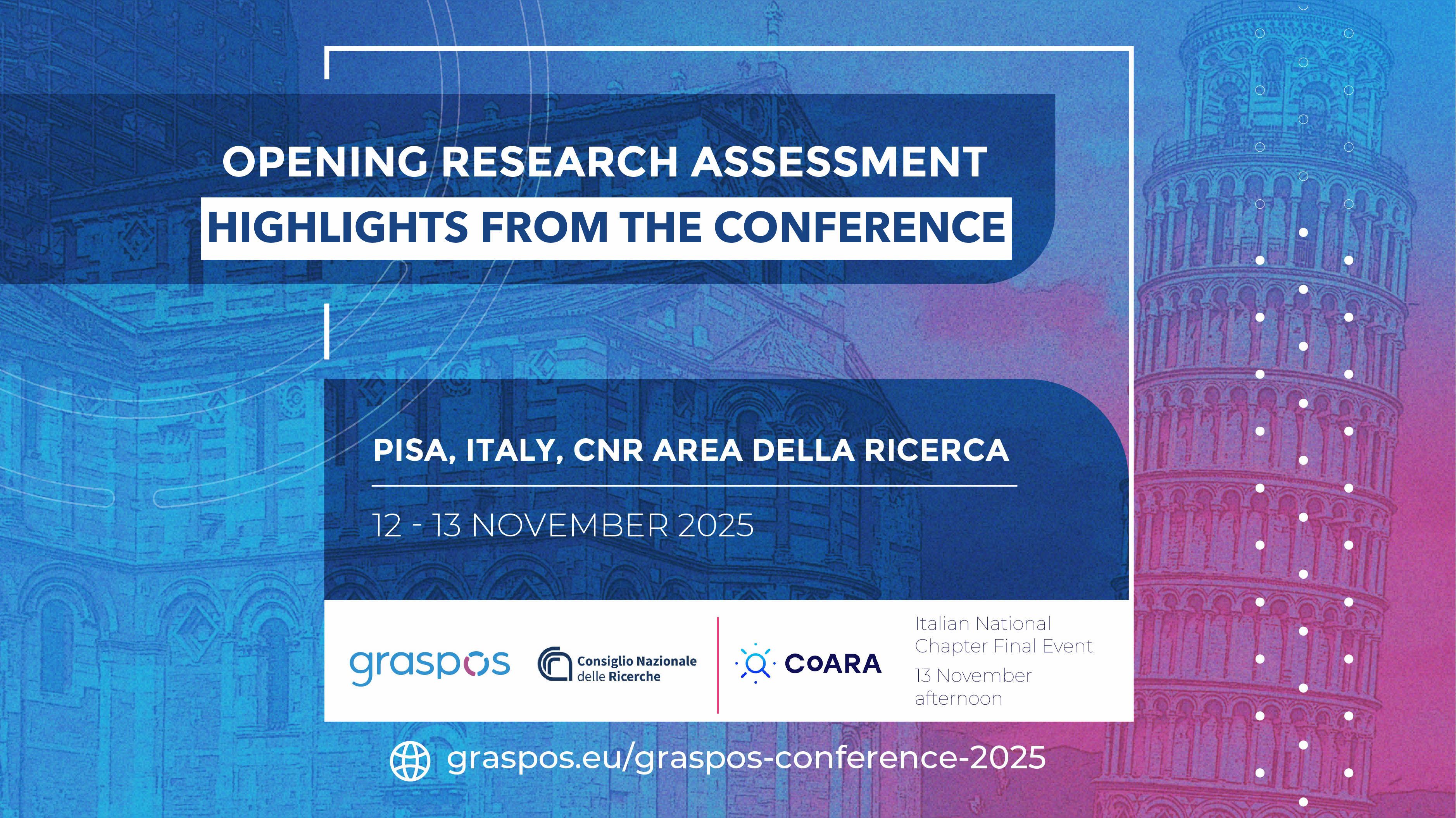GraspOS Chats #5 Get to know Francesca Di Donato
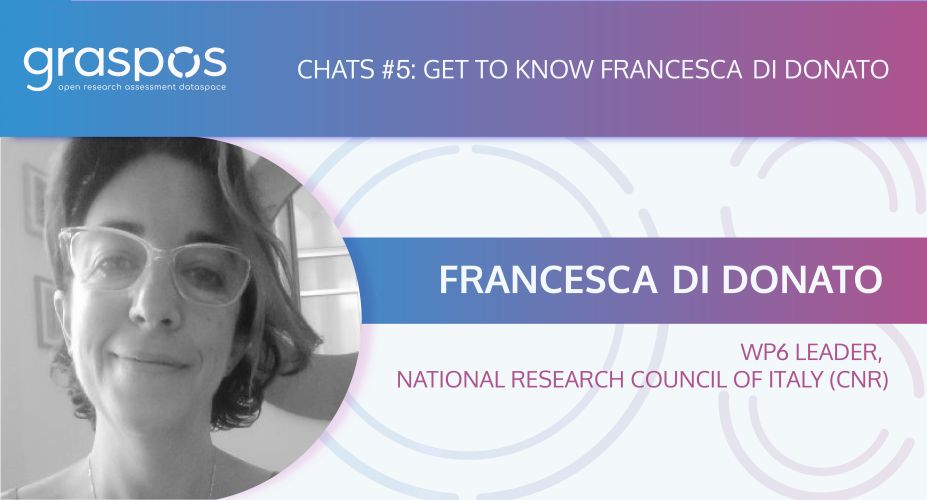
IN THIS SERIES OF INTERVIEWS WE FEATURE GRASPOS MEMBERS TO PRESENT THE PEOPLE BEHIND THE SCENES. WHAT IS THEIR ROLE IN THE PROJECT, THEIR BACKGROUND, AND THEIR VIEW ON THE NEED FOR AN OPEN SCIENCE-AWARE RESPONSIBLE RESEARCH ASSESSMENT SYSTEM?
This month, WP6 Leader Francesca Di Donato answered our questions about what is going on in GraspOS and the need for an Open Science-aware Research Assessment system. Francesca works at the Institute for Computational Linguistics at the National Research Council of Italy (CNR). You can also find her on Twitter, Mastodon, and Linkedin.
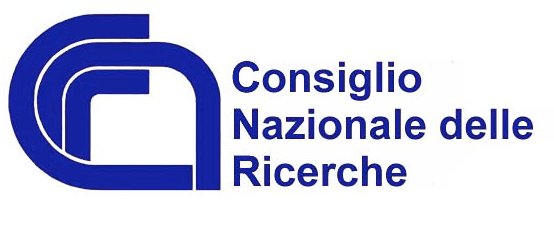
Francesca, can you tell us about your role and activities in GraspOS?
In the GraspOS project I am leading Work Package 6, which deals with Communication, engagement and exploitation of the project results. This means coordinating the various communication activities of the project, but also thinking about the involvement of external stakeholders and supervising the training activities that have been planned. The work of the GraspOS Community of Practice, for instance, which has recently started involving more than 150 people - a third of whom are actively involved - who share their experiences, difficulties and wishes in the reform processes, is part of WP6 activities. WP6 is an important and strategic Work package, which must be aware of everything the project is doing and study how to communicate it in the best way.
What is your academic and professional background? when did you first hear about Open science in your career, and how did you get into it?
Thanks for this question! I have a background in History of Modern and Contemporary Political Philosophy, and at an earlier stage of my career my research was focused on Immanuel Kant's Political thought.
I have been working on open knowledge models and systems for about twenty years. In particular, at the beginning I was interested in understanding how the “architectonic” of the Internet and the web - i.e. their foundational principles - influenced scientific communication, and I studied the movements and principles for free software, and actively followed the evolution and spread of open access to scientific publications. I must say that I experienced all this with a personal interest and commitment: doing Open Science gave meaning to my profession as a researcher. And then, in parallel, Open Science also became my research and teaching topic.
What is your view on the need for an Open Science-aware research assessment system? What are some of the challenges to achieving policy reforms?
Open science is simply science done well, that is, in the correct way: for this reason the evaluation system must be able to highlight those elements that characterise it.
The current evaluation system has created distortions, and it is now clear to everyone that it needs to be rethought. However, the difficulties and challenges to be faced are many: consolidated interests and behaviours, but also the fact that the traditional system, based on quantitative indicators, is represented as objective. We know that this is not the case at all, but this idea remains in academia. Thus, a reform needs a cultural change, and a cultural change needs several elements to happen, among which proper training and education is essential. Then, there is the problem that in different European states we have different assessment systems, and that the reform often has to go through regulatory reforms. In short, the challenges are many.
What are the activities you are currently working on in the project?
In addition to the activities of WP6, I am involved in the pilot of the Italian National Research Council, which has the aim of analysing the criteria used in the selections for the career progression of researchers and technologists working in the institution to see if, and to what extent, Open Science practices are recognised, evaluated and valorised. It is a work in progress, from which I am learning a lot, also through comparison with the experiences of other bodies and stakeholders involved in the other pilots of the project.
What are the aspects you’re most excited about regarding the first developments of the project?
This is a difficult question, it is really difficult to choose something in particular. However, I think that the work of and in the pilots is the aspect that I find most stimulating for my research on Open Science and on the assessment reform. I am particularly interested in this task both for the comparison with different experiences, and above all for the methodology we are using, which is itself is part of the paradigm shift that we would like to see implemented.
One last, question, what is the one thing that you desperately need in your daily work routine?
A lot of Italian coffee :-D!
Thank you for your time Francesca!

